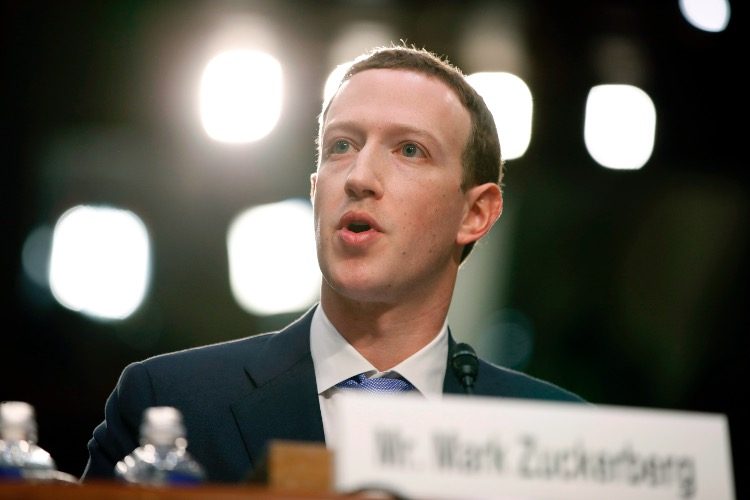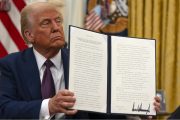
In his newsmaking letter to U.S. House Judiciary Committee Chairman Jim Jordan, Facebook chieftain Mark Zuckerberg did more than admit that the Biden administration pressured the social-media platform to censor what the leftist officials called “misinformation.”
He did more than admit Facebook was wrong to demote to the New York Post’s scoop about Hunter Biden’s laptop.
Those who read between the lines see Zuckerberg’s implicit claim that the U.S. Supreme Court might have been wrong when it ruled that two GOP-led states and other plaintiffs did not have standing to sue the administration about the censorship.
SCOTUS might have erred on the facts.
As well, Zuckerberg admitted the administration trespassed the First Amendment.
The Letter
Zuckerber’s 517-word letter confessed that the administration did indeed encourage Facebook to shut down dissent on the Covid-19 panic, and that the site, again, clamped down on the laptop story.
“In 2021, senior officials from the Biden Administration, including the White House, repeatedly pressured our teams for months to censor certain COVID-19 content, including humor and satire, and expressed a lot of frustration with our teams when we didn’t agree,” the billionaire wrote:
Ultimately, it was our decision whether or not to take content down, and we own our decisions, including COVID-19-related changes we made to our enforcement in the wake of this pressure. I believe the government pressure was wrong, and I regret that we were not more outspoken about it. I also think we made some choices that, with the benefit of hindsight and new information, we wouldn’t make today.
Then came the confession that Facebook tacitly collaborated in pushing the Biden’s administration’s bold lie that that laptop was a Russian “disinformation.”
“In a separate situation, the FBI warned us about a potential Russian disinformation operation about the Biden family and Burisma in the lead up to the 2020 election,” he continued:
That fall, when we saw a New York Post story reporting on corruption allegations involving then-Democratic presidential nominee Joe Biden’s family, we sent that story to fact-checkers for review and temporarily demoted it while waiting for a reply.
Zuckerberg admitted that demoting the story was a mistake, and it wouldn’t do so again.
That’s all well and good. But by demoting the story, Facebook participated in the administration’s disinformation campaign about the laptop, which reached apogee when Biden lied about it during his third debate with President Trump. Biden also lied about the Biden-Burisma influence-peddling scheme. Biden has repeatedly and falsely claimed that he knew nothing of his son’s business dealings, including those with Burisma Holdings, the corrupt Ukrainian energy company. In 2015, while Hunter Biden was on Burisma’s board, then-Vice President Joe Biden forced Ukraine to fire a prosecutor who was investigating the company, or face losing $1 billion in U.S. loan guarantees.
SCOTUS Ruling
Yet aside from admitting that those who said Biden was pushing social media to censor conservatives were not pushing a crazy “right-wing conspiracy theory,” the letter also suggests something else. Supreme Court Justice Amy Coney Barrett and five other justices might have wrongly sided with the Biden administration against two states and other plaintiffs who sued to stop the censorship.
In the 6-3 Murthy v. Missouri decision, Barrett, along with Chief Justice John Roberts and Justice Brett Kavanaugh, sided with the court’s leftists to overturn lower court decisions that said Biden wrongly censored Covid information.
Missouri, Louisiana, and the five individual plaintiffs sued Surgeon General Vivek Murthy and other administration officials to allege that they violated the First Amendment by pushing social media to censor their opinions on the Covid panic.
Lower courts agreed. Barrett and her cohort did not. They ruled that the plaintiffs did not have standing to sue. The plaintiffs “fail, by and large, to link their past social-media restrictions and the defendants’ communications with the platforms,” she wrote.
As well, the “platforms moderated similar content long before any of the Government defendants engaged in the challenged conduct,” Barrett wrote for the majority:
In fact, the platforms, acting independently, had strengthened their pre-existing content moderation policies before the Government defendants got involved.…
This evidence indicates that the platforms had independent incentives to moderate content and often exercised their own judgment.…
The plaintiffs rely on allegations of past Government censorship as evidence that future censorship is likely. But they fail, by and large, to link their past social-media restrictions to the defendants’ communications with the platforms.
In his dissent, Justice Samuel Alito wrote that the plaintiffs had indeed proven their case.
“If the lower courts’ assessment of the voluminous record is correct, this is one of the most important free speech cases to reach this Court in years,” he wrote.
The lower court record is clear, he wrote, and “contains evidence of communications between many different government actors and a variety of internet platforms, as well as evidence regarding the effects of those interactions.”
Continued Alito:
For months in 2021 and 2022, a coterie of officials at the highest levels of the Federal Government continuously harried and implicitly threatened Facebook with potentially crippling consequences if it did not comply with their wishes about the suppression of certain COVID–19-related speech. Not surprisingly, Facebook repeatedly yielded.
So Zuck Says Alito Is Right
So back to Zuckerberg, apropos of Barrett’s claim: “The Biden Administration, including the White House, repeatedly pressured our teams for months to censor certain COVID-19 content, including humor and satire, and expressed a lot of frustration with our teams when we didn’t agree.”
Facebook followed orders and censored content, which calls into question the SCOTUS majority’s decision.
Whether the censored content included that of the plaintiffs in Murthy v. Missouri is unclear. What is clear: Facebook did the Biden administration’s bidding to censor speech that government officials didn’t like.
And the administration’s pressure, again, violated the First Amendment.
H/T: The Hill, The Associated Press



